Abstract:
Web archives enjoy an increasing awareness and usefulness across a range of fields and disciplines, contributing to historical studies with web archives, but also of the world wide web (Brügger, 2018, p. 140). Conducting research into these areas is not merely a discussion of material developments; how technology is understood and used is influenced by distinct discourses that shape social practices, norms, and values (Smit, 2018, p. 47). Knowing how the web is imagined is essential for interpreting sources such as archived web pages, especially during a highly transformative age in which technological advancements develop at a rapid pace.
This case study investigates such a period of technological, high transformability by studying the Dutch web between 1994 and 2004; a precedent decade that includes the rise and dip of influential Dutch web initiatives, for example, internet provider XS4ALL – the first to offer relatively cheap access to the web for everyone outside the academic realm - and De Digitale Stad – the first, online community (Rommes et al., 2003). Both organizations were developed by hacktivists and techno-anarchists who adhered to utopian ideals such as freedom, openness, and creativity. These are evident in defining the internet as a ‘global village' or ‘information highway'; phrases commonly used by popular Dutch newspapers and inspired by leading, American thinkers such as Marshall McLuhan (McLuhan & Power, 1989). However, as this paper shows, already within two years such metaphors changed due to discussions on privacy and censorship, hardware capability, and increasing interference by the state through the push for ‘household computers' advancing administrative practicalities from home.
To make sense of these agile symbolic changes, the paper uses the framework of sociotechnical imaginaries, conceptualized as “collectively held, institutionally stabilized, and publicly performed visions of desirable futures” (Jasanoff & Kim, 2015, p. 4). This concept is appropriate because it focuses on the normative dimensions of social imagination - expressed through discourse and metaphors (Lakoff & Johnson, 2008) - as well as the material aspects of instruments that are products of science and technology (Jasanogg & Kim, 2015, p. 19). Furthermore, this framework explores the “desirable” often grounded in utopian beliefs (p. 4) such as those mentioned previously. Akin angles this research explores are how the utopian ideals, typically inspired by their American liberal and libertarian counterparts, are imagined differently in a European context; the practical realization of the potentiality of the early web into the commercial and bureaucratic sector; how the conversion to WEB 2.0 was constructed. Consequently, this study contributes to previous work on imaginaries that focussed primarily on key thinkers and fundamental designers of the internet age (Flichy, 2007; Mansell, 2012).
Focussing on metaphors and the sociotechnical imaginaries of the Dutch web, this paper reconstructs the scientific and popular discourses of various communities based on newspaper articles and TV/radio fragments; introductory manuals; texts from professional communities; advertisements; policy documents. Through the analysis of this transformative decade, the research allows us to better understand how the web was imagined and thus helps us better position the archived material from this period.
References:
Brügger, N. (2018). The archived web: doing history in the digital age. MIT Press.
Flichy, P. (2007). The internet imaginaire. MIT press.
Jasanoff, S., & Kim, S. H. (Eds.). (2015). Future imperfect: Science, technology, and the imaginations of modernity (p. 1-33). In Dreamscapes of modernity: Sociotechnical imaginaries and the fabrication of power. University of Chicago Press.
Lakoff, G., & Johnson, M. (2008). Metaphors we live by. University of Chicago Press.
Mansell, R. (2012). Imagining the Internet: Communication, innovation, and governance. Oxford University Press.
McLuhan, M., & Powers, B. R. (1989). The global village: Transformations in world life and media in the 21st century. Communication and society.
Rommes, E., Van Oost, E. & Oudshourn, N. (2003). Gender in het ontwerp van De Digitale Stad Amsterdam. Amsterdam sociologisch tijdschrift, 30(1-2), 182-204.
Smit, P. H. (2018). Platforms of memory: Social media and digital memory work. University of Groningen.
Author descriptions:
Nathalie Fridzema is a Ph.D. candidate at the Centre for Media and Journalism Studies & the Center for Digital Humanities. Her project's objective is to create a cultural history of web practices before web 2.0, specifically in the Netherlands between 1994 and 2004. This period of the preliminary web – characterized by idealistic initiatives adhering to utopian ideals like participatory democracy, freedom, and accessibility – is often overshadowed by the swift development of platforms and social media. In this project, Nathalie will take a critical look into this influential period, focussing on the everyday user and website maker. The project adheres to an interdisciplinary approach using quantitative and qualitative methods whilst also borrowing elements from the fields of web anthropology, -archaeology, and -archiving.
Susan Aasman is Professor in Digital Humanities at the University of Groningen and Director of the Centre for Digital Humanities. Her field of expertise is in media and web history, especially in amateur media, documentaries, historical digital cultures, and digital archives. She is part of the WARCnet community which explores the opportunities of researching the historical and archived web. Aasman published widely on the various related topics, such as the co-edited 'Materializing Memories: Dispositifs, Generations, Amateurs' (Bloomsbury, 2018) and 'Amateur Media and Participatory Culture: Film, Video and Digital Media' (Routledge 2019).
Tom Slootweg is assistant professor of contemporary history at the University of Groningen. He is currently exploring various digital tools for doing media historical research and has been involved in the development of the CLARIAH Media Suite research infrastructure as a postdoctoral researcher. Tom is also a board member of the Dutch Foundation for Amateur Film (Stichting Amateurfilm) and is the editor-in-chief of TMG Journal for Media History.
Rik Smit is assistant professor at the Centre for Media and Journalism Studies at the University of Groningen, the Netherlands. His work focuses on the intersections of memory, platform, and critical data studies. He is currently working on a project revolving around histories, practices, technologies, and futures of the platformization of memory.

 PDF version
PDF version
